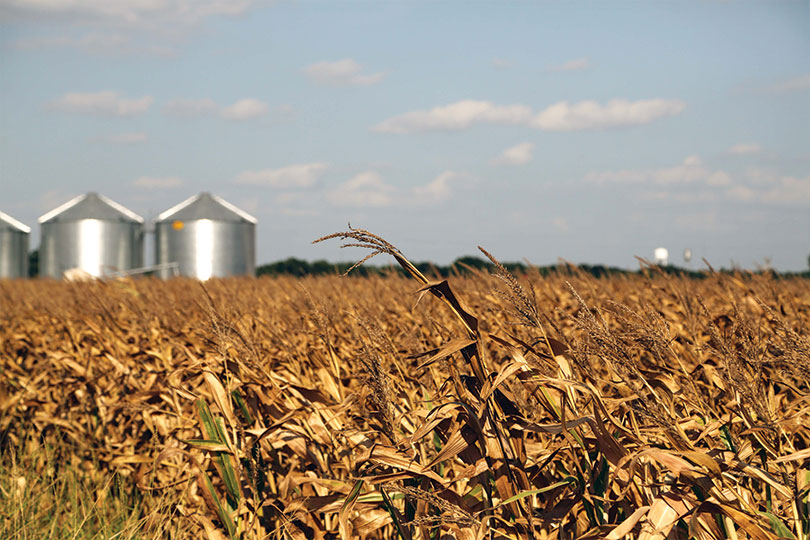By Jessica Domel
Multimedia Editor
A new law that goes into effect Sept. 1 could provide Texas farmers with additional security for their crop should an elevator or grain warehouse fail.
HB 3063 by State Rep. Kyle Kacal and sponsored by State Sen. Charles Perry was a legislative priority for Texas Farm Bureau (TFB) this session.
“The two things we were seeking with this legislation was the ability for farmers to obtain liens on their own grain if it is held in open storage and also if it is stored in a facility that is licensed and bonded,” Marissa Patton, TFB associate legislative director, said.
Previous ag lien statute exempted licensed and bonded facilities from lien eligibility. It also did not cover crops in open storage.
“House Bill 3063 was an important follow up to Senate Bill 1339 from the 84th legislative session. I am always happy to see a common sense compromise on legislation, and I feel that our agricultural associations did a great job working with stakeholders from the banking industry,” Perry, who sponsored the bill in the Texas Senate, said. “This bill will continue to provide a much needed protection for our Texas farmers at a time when the economic success of the industry is more critical than ever.”
The bill ensures farmers who haven’t been paid for a crop they grew and harvested are eligible to file for an agricultural lien, which would give them a priority security interest in the event of a grain elevator or warehouse failure.
“I go back, as we did in the committee, to everybody that testified for the bill to the November 2009 Dorchester Grain Company bankruptcy. We have a bond of almost $320,000, and then you had an estimated loss of almost $4 million in grain,” Kacal said in an interview with the TFB Radio Network. “That left a lot of farmers without a payday on a crop, and you can only imagine how hard that year was. You’re looking at 2009, and then you know what happened in 2011. That was a rough two-to-three, four-year period to be in agriculture.”
In the event of a failure, farmers who have filed the necessary paperwork to obtain a lien will be paid for their grains first before other entities with claims. There are a few exceptions, according to Patton, that are important to note.
“When there is a loss, often there is company-owned grain mingled with farmer-owned grain. This legislation allows a facility or their lender to maintain a priority security interest in their company-owned grain. In a failure, the facility or their lender would be treated equal to the other farmers with liens in being paid for their pro rata share.
After all, if the facility hadn’t purchased the grain, there would be a farmer standing in that footprint. This isn’t an exception as much as it is a qualification of equal treatment,” Patton said. “The outlier is that those who defer payment may not be eligible to obtain a lien. We will continue to work toward finding a way to protect those who defer.”
The legislation this session is not a fix-all, but provides another valuable tool in the toolbox for Texas farmers.
“Ideally, they won’t ever have to use this option,” Patton said. “Hopefully they won’t find themselves needing this kind of protection, but at least we have more of our farmers covered in case they need the help.”
Prior to the legislative session, TFB hosted an extensive working group on the bill. Once the groups came together and agreed on language, it made passage through the committees, House and Senate a bit easier.
“This became one of our premier ag bills. As we move forward, ag legislation is understood by fewer and fewer in the Capitol building, which is sad,” Kacal said. “So this time, mainly our adversary was the bonded grain facilities that thought that these were already taken care of, but that farmer still was hanging out to dry. That is nowhere you want to be when you fight Mother Nature and elements all year, put your grain in storage, and then don’t have first lien on that. The key to this, in my opinion, once the producer has been paid, that lien expires, and that was the issue that I think got everybody on the same page.”
The bill passed the Texas House May 3 and the Texas Senate May 19.
It was signed into law by Gov. Greg Abbott June 15.
It goes into effect Sept. 1.

